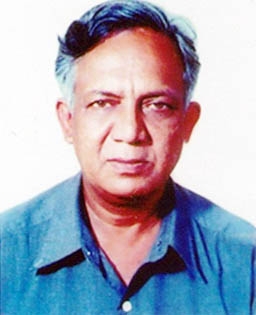
Jehangir Hussain :
India made the National Register of Citizens (NRC) for Assam under a controversial 2003 amendment to the Citizenship Act 1955, to document legal citizens to identify and deport an unspecified number of Assamese branding them as ‘illegal immigrants from Bangladesh’. In 2013, India began implementing the draconian NRC in Assam.
However, Bangladesh does not recognize that any infiltration ever took place from its territory to India. The Indian government plans to implement the controversial system in the rest of the country to divert public attention from the real issues hurting common people.
The Indian government drew heavy domestic criticism for its intentions to use the register or list of citizens to mark people as doubtful citizens for asking them to prove their citizenship. India, however, is silent about immigration of Indian Muslims into Bangladesh that occurred at different times since 1946.
India also finds it quite convenient to keep quiet about five lakh or more Indians working in Bangladesh, legally and illegally, who is 2013 sent home $ 3.17 billion as remittance, according to official statistics. They remitted an equal amount or more to India using the illegal hundi channel. Bangladesh stands 5th among 15 countries, after UAE, USA, Saudi Arabia and UK, from where Indians send remittances to India.
On June 18, 2014, the then Indian home minister Rajnath Singh issued instructions ‘to take National Population Register (NPR) project to create a National Register of Indian Citizens. On 24 December 2019, the government of India approved Rupees 3,941 crore, equivalent to $ 550 million, for updating the NPR, as a first steps in implementing the NRC. In December 2019, Prime Minister Narendra Modi stated that ‘there has been no discussion on NRC anywhere. We only had to implement it in Assam to follow Supreme Court directives.’
CPI (M) leader Prakash Karat criticized the Indian government’s double speak as a ‘disinformation ploy’ and described the NPR as the first step of the NRC process. The issue has been drawing electoral debate in India after the ruling Bharatiya Janata Party (BJP) promised in its election manifesto that the controversial system would be implemented throughout India.
When the All Assam Students’ Union launched a movement against Indians from the other provinces who controlled Assam’s economy and marginalized the Assamese people, two police officers with RSS links turned the agitations against imaginary illegal migrants from Bangladesh.
In the 1980s, Assam witnessed six years of violent agitations against ‘the outsiders’ or the Indians from the other provinces. A section of Indian media and politicians harp on the propaganda that Bangladeshis had illegally migrated to India to take jobs in that country.
Some of these Indian political parties are known for creating a politically charged atmosphere on the imaginary issue of ‘illegal immigrants from Bangladesh and refer to them as ‘vote bank’ particularly when elections are on the corner.
Their allegation may be true to some extent, but what about the Indians living in Bangladesh, legally and illegally, to earn their bread and send money back home in hard currencies through legal and illegal channels?
Foreigners, mostly Indians, are employed in Bangladesh for ordinary administrative work for which there is no shortage of Bangladeshi candidates. Why does a British firm need to appoint an Indian as a clerk or a junior officer when there is no shortage of such personnel in Bangladesh? In Sweden no foreigner is employed when a Swedish is available for the job. The Centre for Policy Dialogue (CPD) recommended to the Bangladesh government to form a committee to investigate the large remittance outflows to India.
The NRC, being implemented in Assam, has its roots in a Memorandum of Settlement or the Assam Accord signed between the All Assam State Students Union and the Government of India in 1985. As the accord could not solve the issue, the NRC was initiated in 2010 as a pilot project in two districts of Assam – Barpeta and Kamrup. But this process was stalled after four weeks of violent clashes in Barpeta.
The work of the NRC was revived following intervention of the Supreme Court of India, after an NGO, Assam Public Works in a petition sought steps for the deletion of the undocumented migrants from the voters’ list and updating the citizens’ list as a step to control the alleged illegal migration. In 2015, the Assam government resumed the work of preparing the NRC.
(Jehangir Hussain is a senior journalist. Email: [email protected]).
(To be continued).

